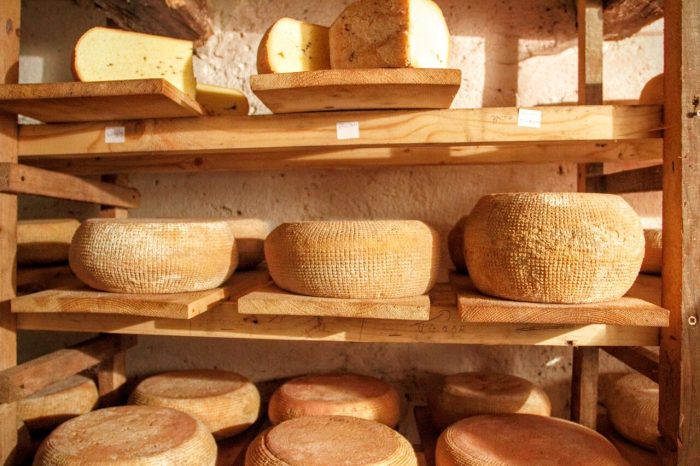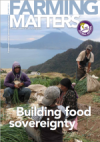Producers and citizens are working together to transform our food systems to make them more socially just, culturally appropriate and respectful of the environment. While shifts in policy are overdue, struggles to attain food sovereignty are popping up all over Europe. This special section highlights a few of these.

Introduction
Agriculture in Europe has long been characterised by a predominance of small scale family farms practicing different forms of peasant agriculture. This model is based on principles of community, diversity, and direct connections with consumers. The current context of land and market concentration has put European agriculture under severe financial and political pressure, but also gives rise to powerful initiatives for food sovereignty.
Squeezing out small scale producers
Europe’s small scale farms have shaped many of its characteristic landscapes, provided employment in rural areas, and developed the foods that inspired Europe’s culinary diversity. But Europe’s farmers are disappearing. Between 2003 and 2013 the European Union lost four million small farms, one third of its total, whilst in most member states, the number of farms of over 100 hectares doubled or even tripled. Although they represent only 3% of European farms, these large farms control 52% of agricultural land. The power of supermarkets is also growing. For example, in 2011 four retailers controlled 85% of the national food market in Germany and three retailers controlled 90% of the food market in Portugal (Nicholson and Young, 2012). National and European policy continue to favour these trends.
These recent trends have major impacts on food producers (including farmers, processors and vendors), consumers and the environment as small scale farmers and fishers are driven from the land and seas. Moreover, Europe is experiencing a massive reduction in agricultural diversity, an increase in labour exploitation in industrial food production and processing, and alarming losses to nature. These shifts are also coupled with unhealthy diets and the associated weight / obesity problems.
Emerging alternatives
The growing interest in food sovereignty around Europe can be understood in light of these social and structural changes. New awareness amongst European citizens of the power they have to drive change is expressed in emerging, innovative initiatives of producers and consumers. This awareness also takes the form of policy proposals, such as the recent European declaration on Community Supported Agriculture, promoted by Urgenci and the referendum in Switzerland to establish food sovereignty policy at a national level. Furthermore, the European movement for food sovereignty is growing.
A European movement
Inspired by the international Nyéléni movement for food sovereignty, a number of European social movements organised a similar process in Europe, seeking space to define actions and strategies to challenge the dominant forces of production and consumption. A major Nyéléni Europe forum took place in October 2016 in Cluj-Napoca, Romania with the presence of 500 delegates from more than 40 countries and 290 organisations. Participants included farmers, fishers, pastoralists, indigenous people, consumers, trade unions, environmental, justice, solidarity, human rights organisations, community-based food movements, journalists and researchers. They shared experiences, built a common understanding of food sovereignty, developed joint actions, and prepared to influence key policies in Europe. Some of the most inspiring food sovereignty experiences in Europe are presented on the following pages.
Read the food sovereignty stories from Europe:
- Food versus the big city of Istanbul
- Resisting land grabbing in Germany
- Regaining trust: alternative food systems in the Czech Republic
- Human-centred agriculture fighting exploitation and racism
This section of the magazine was produced in collaboration with the Nyeleni Europe movement, with generous support from Friends of the Earth Europe and Misereor.
 |
 |

